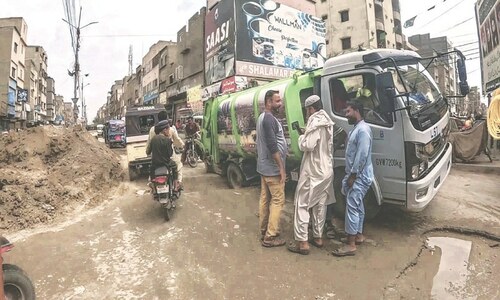KARACHI, Aug 14: A meeting of the provincial steering committee on polio eradication has been convened under the chairmanship of the chief secretary of Sindh on August 16 at the Sindh Secretariat building.
Sources in the provincial health department said the meeting, which is being held in line with the broad principles framed at the meeting of the Technical Advisory Group (TAG) last held on June 24 and 25 at Karachi, will be the first of its kind in recent history. It will look into the planning and monitoring of polio virus eradication activities carried out across the province. During the year so far, Sindh has reported 12 cases of polio – including four in Karachi – as confirmed by the National Institute of Health, Islamabad.
During the TAG meeting in question, it was observed that the prevalence of Type 1 wild polio virus transmission in the province showed some operational lacunae rather than technical flaws in the polio eradication campaigns. According to a source privy to the TAG meeting, some local and foreign experts had noted that the defects were related to non-immunisation of some children in successive rounds of each campaign, which showed the poor supervision and reporting of performance in some districts of Sindh. The problems in question were attributed to the persistent, insufficient ownership of polio eradication in Sindh and inconsistent accountability by responsible officials at all levels.
The revival of the provincial steering committee headed by the chief secretary, creation of similar committees at the district level under the respective DCOs and other concrete actions were recommended by TAG to ensure that missed out communities, children, services to minority groups and other defects were also effectively tackled.Recently, in a follow-up of the TAG’s requirements, the Sindh government notified the composition of the provincial steering committee, with the Sindh chief secretary as its convener.
The additional secretary, P&D department (development), will be the co-chairman and the health secretary will serve as the committee’s secretary, with senior officials from the provincial education and literacy department (development), director-general (health), district coordination officer and EDOs (health), from four and two of the districts on rotational basis, WHO operations officer (Sindh) and Unicef field officer serving as members.
On Aug 16 the committee – among other items on the agenda – is scheduled to hear about the latest scenario on polio and interventions made in the province from the provincial health secretary and the provincial manager of the expanded immunization programme, and seek support from the chief secretary towards implementation of eradication measures through the district coordination officers, said a source.
It was learnt that the only basis for a confirmed administration of vaccine among the deserving children was finger marking, while on the other hand there was also a need for administration of oral polio drops to children in streets, markets and other places.
















































Dear visitor, the comments section is undergoing an overhaul and will return soon.